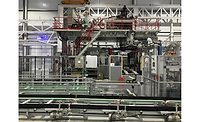CNNC TD Plans to Invest in Rival TiO2 Producer

GUANGZHOU, China - The mergers and acquisitions race in China’s titanium dioxide (TiO2) industry appears to be heating up despite the recent turbulence in China’s stock market, as leading producer CNNC TD announced on July 14 that it was negotiating a deal worth over RMB200 million ($32.7 million).
The company’s most likely target is rival Chinese producer Shandong Dawn, insiders familiar with the matter have disclosed to CCM, a market research firm in Guangzhou, China.
CNNC TD first gave an indication that it was planning a deal on July 7 when it announced a trading halt on its stocks, citing plans for a major activity. All four of China’s listed TiO2 companies are now under trading halts.
On Tuesday, the company applied to extend its trading halt on the grounds that its negotiations were ongoing and the outcome remained uncertain. It also specified that the deal was related to investing over RMB200 million in China’s TiO2 industry.
In April, CNNC TD was rumored to be considering a deal with Shandong Doguide Group, but CCM has heard from several sources that the company’s target is now Shandong Dawn.
Shandong Dawn is a major TiO2 producer in China and claims to have assets worth up to RMB2 billion. Though this figure may in reality be lower, CNNC TD is highly unlikely to gain a controlling interest in Shandong Dawn for RMB200 million and a deal for a 10-20 percent stake in the company would be more realistic at this price.
Yang Xun, Senior Analyst at SunSirs, a commodity data provider, commented, “This kind of deal (acquiring a smaller stake in the company) would be a win-win for both parties because CNNC TD can gain shares and the target company can raise capital.”
Shandong Dawn also has a number of things that would make it a useful investment for CNNC TD. The company is one of China’s leading exporters of TiO2 thanks to the high quality of its products compared to its rivals and its location in the coastal city of Yantai in Shandong Province. Shandong Dawn also enjoys a good reputation for quality in the domestic market.
According to Xun, CNNC TD is likely to be looking to invest in companies with “unique advantages such as being located near harbors, having overseas markets, owning their own ore resources, or possessing clients groups in special regions.”
Some have speculated that CNNC TD may be using this possible merger to announce a trading halt and avoid the fallout from the ongoing problems in China’s stock market, but Dean Wu, Editor of CCM’s TiO2 E-Journal, reasons that this is unlikely.
“CNNC TD’s trading halt has certainly come at a convenient time, but many Chinese companies have halted trading without giving such specific reasons,” said Wu. “If the deal now turned out not to be genuine, CNNC TD would be subject to severe punishment. I don’t think that it needs to take such a risk.”
“What’s more, we have had very specific information from several sources as to CNNC TD’s likely target, and investing in this company makes sense from a business perspective,” Wu added.
If the deal is confirmed, it will be the second major deal involving a listed Chinese TiO2 company in as many months after Henan Billions finalized its merger with Lomon on June 5. Jilin Gpro is also strongly rumored to be in the process of acquiring Jiangsu Zhentai, but no further details on this deal have been announced so far.
Looking for a reprint of this article?
From high-res PDFs to custom plaques, order your copy today!





